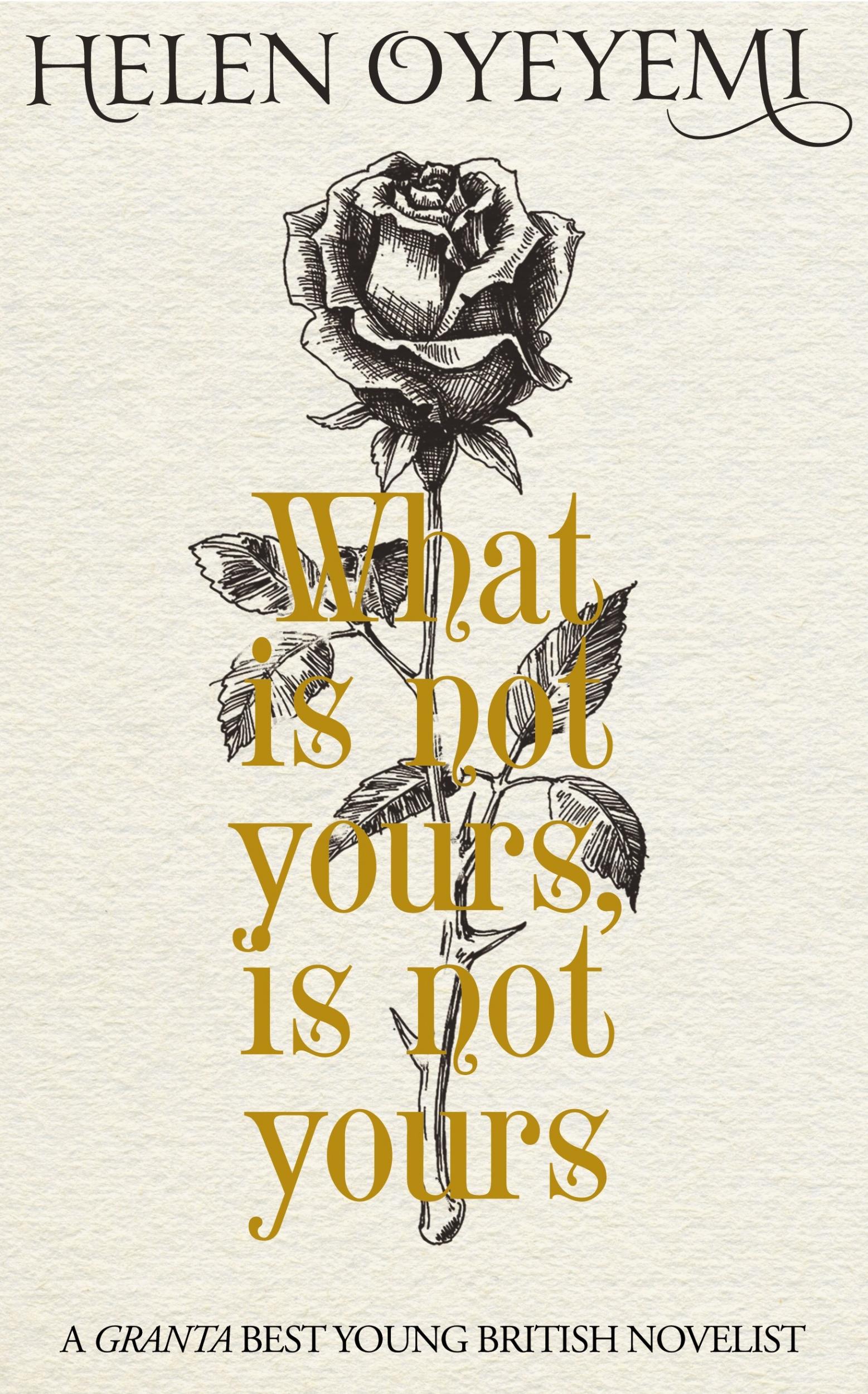Helen Oyeyemi, What is Not Yours is Not Yours: ' Locked out from a complex world of myth and mystery', book review
The book conjures an effect of ethereal beauty and unexpected humour, but, as the book wears on, meaning becomes increasingly elusive amid the narrative mazes

In keeping with the mythical quality of her novels, Helen Oyeyemi’s new collection of short stories, What is Not Yours is Not Yours, is replete with secret gardens, mysterious lands, living puppets and sealed spaces.
The stories build mystical allure by means of recurrent motifs, especially keys and locks, as well as an allusive structure of stories-within-stories.
On one level, this conjures an effect of ethereal beauty and unexpected humour, especially in the tension between Oyeyemi’s otherworldly tone and contrastingly matter-of-fact observations, but, as the book wears on, meaning becomes increasingly elusive amid the narrative mazes.
The collection’s strongest tale is its opening one, “books and roses”, partly because the symbolism of keys and locks has yet to become heavy-handed.
The 15 best opening lines in literature
Show all 15The story of Montse, an abandoned baby bearing a golden key, intertwines with that of the beautiful thief Lucy, whose lover also sends her a key, and the twin narratives dance around each other until merging in a romantic climax. Oyeyemi plays with a legend in which lovers exchange books and roses on a particular day; correspondingly, the bequest of a whole library and a meeting in a garden of roses suggest a supremely great love.
But Oyeyemi’s disparate symbols, dream-states and fragmented narratives fail to add up so tidily in most of the other stories. Early on in the book, one character quotes from an archaic poem: “It may wele ryme but it accordith nought.” This proves unfortunate foreshadowing, as Oyeyemi’s technically elegant writing ultimately amounts to more style than substance.
As far as style goes, there are plenty of enjoyable moments. Flashes of deadpan humour crop up frequently: a pregnant woman recalls her lover observing, “‘Babies are so …’ and I thought he was going to say something poetic but he finished: ‘expensive’.”
A creepy pop star sings “with a vocal tone reminiscent of post-coital whispers”. One character describes the compulsive power of a good book: “I read without stopping until the end, as if somebody were chasing me through the pages with a butcher’s knife.”
Oyeyemi’s potent imagination supplies clinics where dieters are put to sleep in order to wake up thinner three days later (“‘sorry’ doesn’t sweeten her tea”), puppets with human emotions (“is your blood as red as this?”), married psychologists whose experiments stop time (“presence”) and a cruel dictatorship in which those drowned by the king live on in the marshes (“drownings”).
Such plots employ heavy whimsy, and surreal quirkiness abounds at the cost of emotional impact; in the abundance of puzzling narrative detail, disjointed elements and randomly recurring characters, the stories challenge the head more than engage the heart.
Amid the Russian-doll narratives, strange characters end up seeming psychologically unconvincing and, as a result, unaffecting: brightly painted but, like the puppets, wooden.
In “a brief history of the homely wench society”, a Cambridge student “looked the word bigarrure up and found that it meant both ‘a medley of sundry colours running together’ and ‘a discourse running oddly and fantastically, from one matter to another’.”
This works as a useful summation of Oyeyemi’s book, in which odd occurrences blur together to subvert linear narrative and meaning. In “drownings” (which opens, in aptly obscure fashion, with “This happened and it didn’t happen,”) an impoverished man, Arkady, plans to kidnap the king’s daughter.
The story kaleidoscopes back to tell the tale of the girl, named Eirini the Fair, and the adultery between her mother, Eirini the First, and a mysterious man. Meanwhile the king drowns anyone who mutters a word against him:
“The air was noxious where the drowned were … Houses throughout the country stood empty because the tyrant had eliminated their inhabitants; the swamp of bone and weights and plasma also had house keys mixed into it, since many had drowned fully clothed along with the contents of their pockets.
Eirini the Fair was aware of the keys. She visited the marshlands as often as she dared, crossing narrow stone bridges with a lantern in her hand … Eirini the Fair swung her lantern around her in a circle and when her tears met the water, they told their own meaning as they flowed from eye socket to eye socket.”
The story returns to Arkady and his companions (guileless Giacomo and an acrobatic dog named Leporello), who help him steal a key to Eirini the Fair’s chamber.
Arkady dreams that the key falls into flames and, the next morning, is arrested for an arson attack and locked up by the king, whose tyranny prompts an exodus from his land.
Consistent with the note of warning in its title, What is Not Yours is Not Yours works to keep you out more than let you in.
What is Not Yours is Not Yours, by Helen Oyeyemi. Picador £12.99
Subscribe to Independent Premium to bookmark this article
Want to bookmark your favourite articles and stories to read or reference later? Start your Independent Premium subscription today.

Join our commenting forum
Join thought-provoking conversations, follow other Independent readers and see their replies